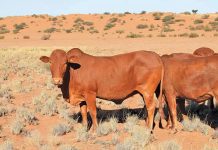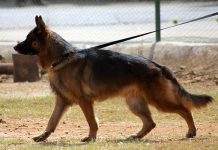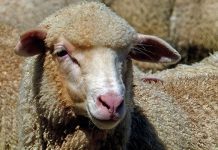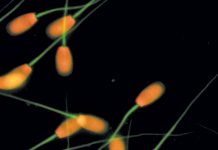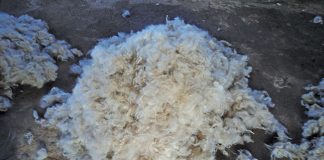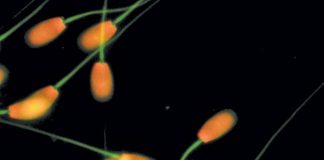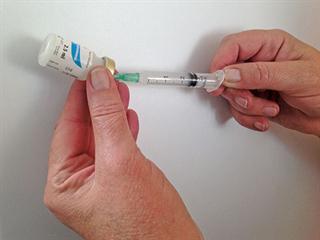
It’s also crucial to get the dose just right. Too much can kill an animal, while too little will not cure the disease. These days, injections are almost always given with sterile (germ-free) plastic needles and syringes, which can be bought from a pharmacy, a co-op or a vet. Each needle and syringe is sterile and packed in its own transparent paper or plastic sleeve. If this is missing, or damaged, the syringe or needle is no longer sterile and could be dangerous for the animal.
Plastic needles and syringes are disposable – in other words, meant to be used only once. Old-fashioned glass syringes and metal needles can still be bought. They are more expensive than disposable syringes and needles and must be boiled for at least 10 to 15 minutes before use. Afterwards, they must be thoroughly washed, dried carefully and kept in a dust-free container.
Variety of sizes for different uses
Syringes and needles come in different sizes. A 20ml syringe is generally used for injecting medicines such as Tetracycline into cattle, while a 10ml syringe is suitable for an adult pig or a calf of about 200kg. Use a 5ml syringe for adult sheep and goats, and a 2,5ml syringe for lambs and kids. As a vaccine dose is much smaller than a dose for medicines, smaller syringes are used for vaccination, even for large animals.

The various kinds of syringe and colour-coded needles.
When vaccinating, you can use a syringe more than once, but you must fill it using a new needle so as not to contaminate the vaccine in the bottle. And you must, of course, use a new needle for each animal. The average adult cow is worth about R6 000 so it’s false economy to use a needle on more than one animal; a used needle that costs R1 can carry Rift Valley Fever, lumpy skin disease, heartwater, redwater or brucellosis from one cow to another in your herd.
Colour-coded needles
Needle size is also important. Disposable needles are generally colour-coded, making it easier to choose the right one.
- For a sick cow, adult pig or large calf, use a pink 18-gauge needle.
- For sheep and goats, use a brown 19-gauge needle, and for lambs or kids, a yellow 20-gauge needle.
- For chickens, a small, green 21-gauge needle is recommended.
Large syringes with long, thick needles are used mainly for injecting medicine into the muscle or vein. Short needles are generally used for vaccinations, which are given subcutaneously (under the skin). In general, vaccination needles should be no longer than 1,5cm. Always take an old bottle with you for the used needles when injecting animals. Both the needles and syringes can be highly dangerous for animals and humans and should never be left lying around. They should also never be thrown out with the rubbish, but incinerated as soon as possible.
Next article: injecting cattle.



